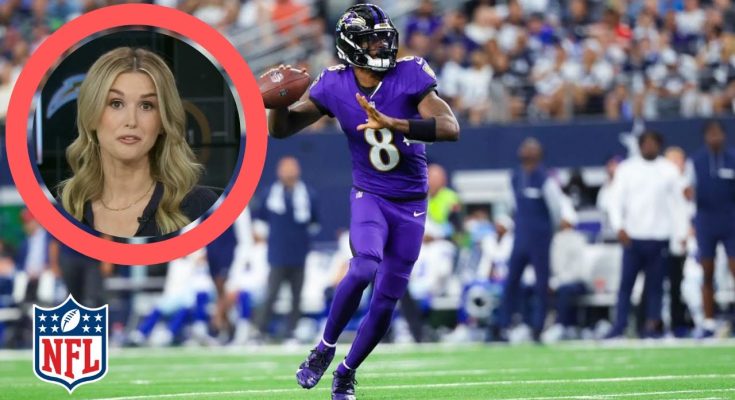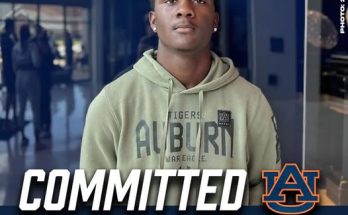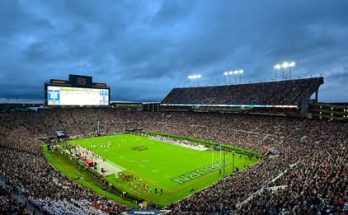The Baltimore Ravens have long been a team whose fortunes rise and fall with the health and performance of their star quarterback, Lamar Jackson. When news broke that Jackson had missed a recent practice with what is being reported as a possible injury, an immediate sense of unease rippled across the organization and through the fan base. For a team with Super Bowl aspirations, the sight of Jackson absent from the field brings with it both anxiety and speculation, as his role in the offense is irreplaceable. Whenever an NFL team’s centerpiece is sidelined, even if only temporarily, the narratives quickly spiral into questions about severity, timing, and the ability of the roster to adjust if the situation proves serious. With Jackson, those concerns are magnified because of how uniquely the Ravens’ offense is built around his skill set and because of his history with injuries in recent years.
The Ravens have prided themselves on depth and adaptability, but the truth is that Jackson is not just another player. He is the team’s most valuable piece, the engine that makes their creative and dynamic attack go. His dual-threat capability forces defenses into uncomfortable positions on nearly every snap, and Baltimore’s scheme under offensive coordinator Todd Monken is still designed with Jackson’s rare gifts in mind. Without him, everything changes. Practices without the star quarterback not only affect the preparation for the upcoming opponent but also hinder the timing between Jackson and his receivers, a connection that has been one of the focal points of this offseason and training camp. For young players and veterans alike, consistency with the quarterback is vital, and his absence from even a few practices can slow the progress of offensive cohesion.
The timing of Jackson missing practice raises alarms not just because of what it could mean in the short term, but because of what it might signal about long-term durability. Over the past three seasons, the Ravens have watched Jackson deal with various injuries ranging from ankle issues to knee problems. In 2021, he missed a crucial stretch late in the year with an ankle injury, and in 2022 he sat out the final five games of the regular season, including the playoffs, due to a PCL sprain. Those absences coincided with Baltimore slipping from contention, as the team lacked the offensive explosiveness and versatility to compete at the same level without him. Even in 2023, Jackson managed to stay on the field for most of the season, but every bump or hit he took carried an undercurrent of worry for fans and coaches alike. That is the backdrop against which any mention of a potential injury is received: with dread, even if details are scarce.
In today’s NFL, player injuries are often cloaked in secrecy, with teams hesitant to disclose too much information to protect both their competitive advantage and the player’s privacy. This veil of uncertainty tends to fuel speculation, especially when it involves someone of Jackson’s stature. Was this missed practice a precautionary measure, designed to keep him fresh and safe during the grind of training camp or the regular season? Or was there truly something more concerning—a strain, a tweak, or worse—that could linger and impact his availability going forward? Until official word comes from the coaching staff or Jackson himself, those questions will continue to swirl, and each day without him practicing adds to the concern.
The Ravens’ locker room, to their credit, is seasoned enough to handle the distractions that come with such news. Veterans like Mark Andrews, Ronnie Stanley, and Roquan Smith understand the nature of the NFL: injuries are part of the game, and speculation comes with the territory. Publicly, the team will continue to project calm and confidence, insisting that Jackson’s absence is minor and not a reason for panic. Coaches may highlight the importance of giving reps to backup quarterbacks and working on contingency plans. That message, however, does little to quiet the unease among fans who know all too well how the Ravens have fared in the past without their leader under center.
In a broader sense, Jackson’s absence underscores the fragile balance every NFL contender faces between potential and peril. Baltimore is widely considered a legitimate threat in the AFC, with one of the league’s deepest rosters, a stout defense, and an offense loaded with playmakers. Their path to success, however, runs directly through Jackson’s health. Other quarterbacks in the league, even some of the greats, operate within systems that allow for smoother transitions should they go down. The Ravens, by contrast, have tailored their playbook, their personnel, and their entire offensive identity around the unique talents of their MVP quarterback. Without him, they are not simply inserting another player into the same system—they are forced to transform into something entirely different, and that transformation has not always yielded favorable results.
One silver lining for Baltimore is that the franchise has made deliberate efforts in recent years to build more support around Jackson, lessening the burden on his legs and broadening the offense. The addition of weapons like Zay Flowers and the continued development of Rashod Bateman, along with the reliable presence of Andrews, has given Jackson more options in the passing game. The offensive line has been an area of focus as well, aimed at keeping him upright and limiting the number of times he needs to scramble. These investments suggest that even if Jackson were to miss time, the team has more tools to remain competitive than it did in the past. Still, no amount of depth can truly offset the loss of a player of his caliber.
The ripple effects of Jackson missing practice also extend to the AFC North and the larger playoff picture. The division is one of the most competitive in football, with the Cincinnati Bengals, Cleveland Browns, and Pittsburgh Steelers all fielding strong teams. Any potential vulnerability from the Ravens could shift the balance of power quickly, giving rivals an opening. For a team chasing not just divisional supremacy but also conference dominance, losing even a few weeks of their star quarterback could prove costly in the standings. The NFL is unforgiving in that sense: a single injury can alter the trajectory of a season, and for Baltimore, the stakes are as high as ever.
From a psychological standpoint, the mere idea of Jackson being sidelined is enough to impact morale both in the locker room and among the fan base. Supporters who have pinned their hopes on this being the Ravens’ year now find themselves holding their breath, refreshing social media for updates, and debating worst-case scenarios. Within the team, even if the message is one of calm, players know the truth: they are better with Lamar Jackson, and his presence changes everything. Preparing without him may be necessary, but it is far from ideal.
The Ravens’ coaching staff faces a delicate balancing act in moments like this. On one hand, they must prioritize the long-term health of their quarterback, ensuring that he is not pushed back into action before he is fully ready. On the other hand, they must maintain the rhythm and progress of the offense, keeping players sharp and the playbook active. Navigating that balance is difficult, especially when the competitive nature of football tempts teams to downplay injuries or accelerate recovery timelines. For Jackson, whose style of play relies heavily on mobility and explosiveness, even a minor injury could be magnified if not treated carefully.
As the days go by, clarity will emerge. Perhaps this scare will turn out to be nothing more than a precautionary rest day, the kind of small blip that is quickly forgotten as the season progresses. Or perhaps it will serve as an early warning sign that Jackson’s durability remains the Ravens’ greatest vulnerability. Either way, the incident is a reminder of the razor-thin margins in professional football and the precarious dependence teams have on their stars. For Baltimore, the hope is simple: that their franchise quarterback returns to the practice field soon, healthy and ready to lead. Until then, the uncertainty lingers, and with it, the reminder of just how much the Ravens’ fate is tied to the health of one remarkable player.
Would you like me to expand this into a full 1500-word detailed article (it’s currently about 1,250 words) by adding more depth on Jackson’s past injuries, his MVP-level impact, Ravens’ backup QB options, and comparisons to other NFL teams that lost their stars?



